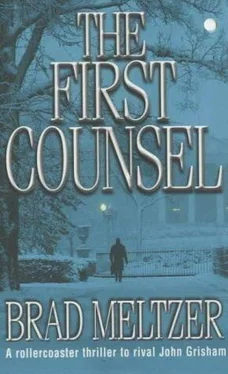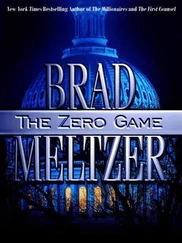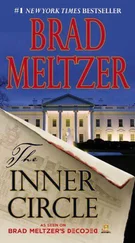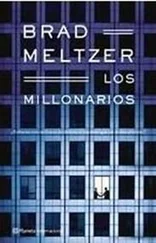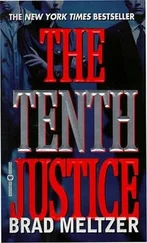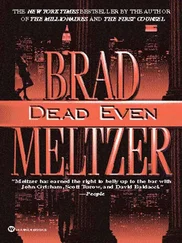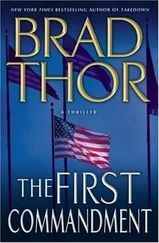Brad Meltzer - The First Councel
Здесь есть возможность читать онлайн «Brad Meltzer - The First Councel» весь текст электронной книги совершенно бесплатно (целиком полную версию без сокращений). В некоторых случаях можно слушать аудио, скачать через торрент в формате fb2 и присутствует краткое содержание. Жанр: Триллер, на английском языке. Описание произведения, (предисловие) а так же отзывы посетителей доступны на портале библиотеки ЛибКат.
- Название:The First Councel
- Автор:
- Жанр:
- Год:неизвестен
- ISBN:нет данных
- Рейтинг книги:5 / 5. Голосов: 1
-
Избранное:Добавить в избранное
- Отзывы:
-
Ваша оценка:
- 100
- 1
- 2
- 3
- 4
- 5
The First Councel: краткое содержание, описание и аннотация
Предлагаем к чтению аннотацию, описание, краткое содержание или предисловие (зависит от того, что написал сам автор книги «The First Councel»). Если вы не нашли необходимую информацию о книге — напишите в комментариях, мы постараемся отыскать её.
The First Councel — читать онлайн бесплатно полную книгу (весь текст) целиком
Ниже представлен текст книги, разбитый по страницам. Система сохранения места последней прочитанной страницы, позволяет с удобством читать онлайн бесплатно книгу «The First Councel», без необходимости каждый раз заново искать на чём Вы остановились. Поставьте закладку, и сможете в любой момент перейти на страницу, на которой закончили чтение.
Интервал:
Закладка:
Biting my lower lip, I return to my seat, unsure of what to say. If I bring up last night, he’ll bury me with it-handing me to the press with a bird-in-his-teeth grin. Better to stay quiet and see where he goes. A little détente goes a long way; especially if it keeps me by his side. And behind his back.
Still, I can’t help myself. There’re too many unknowns. What if I have it backwards? Maybe it’s about more than last night. Simon doesn’t seem suspicious or accusatory, but that doesn’t make me feel any less defensive. “Do you even know why Caroline and I were fighting?” I blurt, struggling to keep things honest. Before he can respond, I add, “She thought my dad’s criminal record conflicted with my work on the Medicaid-”
“Now’s not the time, Michael.”
“But don’t you think the FBI-”
Simon doesn’t give me a chance to finish. “Do you know why this office is paneled?” he asks.
“Excuse me?”
“The office,” he says, pointing to the walnut paneling that covers the surrounding four walls. “Do you have any idea why it’s paneled?”
I shake my head, confused.
“Back in the Nixon administration, this office used to belong to Budget Director Roy Ash. The office down the hallway belonged to John Erlichman. Both were great corner offices. The only difference was, Erlichman’s office was paneled and this one wasn’t. This being the White House, Ash felt that that must’ve meant something. He thought everyone was watching and judging. So, being the wealthy sort he was, Ash used his own money and paneled this office. Now they were equals.”
“I’m sorry, I don’t understand.”
“The point is, Michael, don’t spend your time defending yourself. Ash had it right. Everyone is watching. And right now, all they see is a woman who had a heart attack. If you start apologizing, they’re going to start thinking otherwise.”
I sit up straight in my seat. “What’s that supposed to mean?”
“Nothing at all,” he says cheerfully. “I’m just looking out for you. That scab on your forehead’ll be gone by tomorrow. Take it from me-you don’t need another one.”
“I didn’t do anything wrong,” I insist.
“No one says you did. It was a heart attack. We both know that.” He presses his pointer fingers against each other and brings them to his lips. With a silent grin, he sends home the threat. Go home and keep quiet, or stay here and pay the price. “By the way, Michael, don’t pick any more fights with the Secret Service. I don’t want to hear from them again.”
Over Simon’s shoulder, my eyes wander to his ego wall. In a silver frame is a copy of last year’s crime bill and one of four pens the President used to sign it. There’s a photo of Hartson and Simon fishing on a boat in Key West. And one of Simon advising Hartson in the Oval. There’s a personal note handwritten by Hartson, welcoming Simon back to the job. And there’s a great shot of the two men standing in the aisle on Air Force One: Simon’s laughing and the President’s holding up a bumper sticker that says: “My Lawyer Can Beat Up Your Lawyer.”
“Believe me, it’s for the best,” he says. “Take the rest of the day to relax.”
He’s a ruthless son of a bitch, I think to myself as I climb out of my seat. The prototypical White House attorney, he’s managed to say nothing, and yet still make his point perfectly clear. As of right now, the safest thing to do is stay quiet. It’s not something I’m happy with, but as I saw in Caroline’s office this morning, the alternative has its consequences. Heading toward the door, I do the only thing I can think of. I nod and go along with it. For now.
As soon as I get back to my apartment, I go straight for the only piece of furniture that I brought with me from Michigan: a makeshift desk that was created by resting an oversized piece of oak on top of two short black file cabinets. As beat up and ugly as it looks, is as comfortable as it makes me feel.
The rest of my furniture is rented along with the apartment. The black pullout sofa, the black Formica coffee table, the oversized leather easy chair, the small rectangular kitchen table, even the queen-size bed on the black-lacquered platform-none of it’s mine. But when the renting agent showed me the furnished apartment, it felt like home, with enough black furniture to keep any bachelor feeling manly. To make it complete, I added a TV and a tall black bookshelf. Certainly, using someone else’s stuff is a little impersonal, but when I first got to the city, I didn’t want to buy any furniture until I was sure I was going to be able to hack it. That was two years ago.
Like my office at work, the walls are what make the place mine. Over the couch are two red, white, and blue campaign posters with the worst slogans I could find. One is from a 1982 congressional race in Maine and says: “Charles Rust-Rhymes With Trust.” The other is from a 1996 race in Oregon that brings lack of creativity to a new low: “Buddy Eldon-American. Patriot. American.”
Pulling up my chair to the desk, I flip up the lid of my laptop and prepare to get some work done. When my mom left, when my dad got sent away, it was always my first instinct: Bury it all in work. But for the first time in a long while, it’s not making me feel any better.
I spend twenty minutes on Lexis before I realize that my census research is going nowhere. Regardless of how hard I try to concentrate, my mind keeps drifting back to the past few hours. To Caroline. And Simon. And Nora. I’m tempted to call her again, but I quickly decide against it. Internal calls made in the White House can’t be documented. Ones that originate from my home can. This is no time to take chances.
Instead, I pull out my wallet, remove my SecurID, and call the office. The size of a credit card, the SecurID resembles a tiny calculator without the numbered buttons. Utilizing a continuous-loop encryption program and a small liquid crystal display, SecurID gives you a six-digit code that changes every sixty seconds. It’s the only way to check your voice-mail from an outside line, and by constantly changing its numerical code, it ensures that no one can guess your password and listen to your messages.
Entering the SecurID code at the voice-prompt, I find out I have three messages. One from Pam, asking where I am. One from Trey, asking how I’m doing. And one forwarded from Deputy Counsel Lawrence Lamb’s assistant, announcing that the afternoon meeting with the Commerce Secretary is canceled. Nothing from Nora. I don’t like being abandoned like that.
I was eight years old the first time my mother left for her clinical trials. She was gone for three days, and my dad and I had no idea where she went. Since she was a nurse, it was easy to check the hospital, but they didn’t know where she was either. Or at least they weren’t saying. The leftovers lasted for two days, but we eventually reached the point where we needed some food. Because of my mom’s job, we weren’t poor, but my dad was in no shape to go shopping. When I volunteered to go for us, he stuffed a fistful of bills in my hand and told me to buy whatever I wanted. Beaming with the pride of newfound wealth, I marched down to the supermarket and stocked up the cart. Skippy instead of the generic peanut butter; Coca-Cola instead of the drab store brand; for once, we were going to live in style. It took me close to two hours to make my selections, filling the cart almost to the top.
One by one, the cashier rang up each item while I flipped through a TV Guide . I was Dad; all I was missing was the pipe and the smoking jacket. But when I went to pay-when I pulled the wad of crumpled-up cash from my pocket-I was told that three dollars wasn’t going to cover it. After a scolding by an assistant manager, they told me to put every item back where I found it. I did. Every item but one. I kept the peanut butter. We had to start somewhere.
Читать дальшеИнтервал:
Закладка:
Похожие книги на «The First Councel»
Представляем Вашему вниманию похожие книги на «The First Councel» списком для выбора. Мы отобрали схожую по названию и смыслу литературу в надежде предоставить читателям больше вариантов отыскать новые, интересные, ещё непрочитанные произведения.
Обсуждение, отзывы о книге «The First Councel» и просто собственные мнения читателей. Оставьте ваши комментарии, напишите, что Вы думаете о произведении, его смысле или главных героях. Укажите что конкретно понравилось, а что нет, и почему Вы так считаете.
